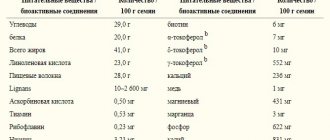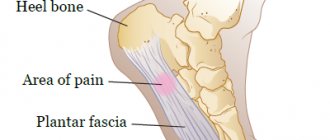Back to list Previous article Next article
21.06.2021
Tags:
useful, flax seeds
5/5 — (2 votes)
Flaxseed is a plant food that contains healthy fats, antioxidants, and fiber. Some call it a "functional food." This means that a person can use it to improve their health.
People grew flax as a crop in ancient Egypt and China. In Asia, it has been used in Ayurvedic medicine for thousands of years.
Today, flaxseed is available in the form of seeds, oil, powder, tablets, capsules and flour. People use it as a dietary supplement to prevent constipation, diabetes, high cholesterol, heart disease, cancer and several other diseases.
Nutrients in flaxseed include:
- lignans,
- antioxidants,
- fiber,
- protein and polyunsaturated fatty acids such as alpha-linolenic acid (ALA), or omega-3.
Consuming these nutrients can help reduce your risk of developing various diseases.
However, there is currently insufficient evidence to support all of these hypotheses. Let's look at what research says about flaxseed and its possible benefits.
Effect of flax seeds on constipation
Experts believe that flax seeds can be consumed for minor constipation, in complex cases when the problem has become chronic. In addition, it is a good preventive measure.
The seeds contain a lot of plant fibers, which, when they enter the digestive tract, swell under the influence of liquid. Feces in the intestines, combining with fiber, make it possible to remove feces without much difficulty, this saves from cracks and hemorrhoids.
The seed shell contains mucus, which is not digested after consumption, but enters the intestines and acts as an enveloping agent. Flaxseed reduces inflammation and promotes healing of small wounds.
Discussion
All those surveyed highly appreciated the organoleptic properties of “Medicinal porridge” according to the main criteria: appearance, smell, color, taste, consistency (from 8 to 10 points on a 10-point scale) and expressed a desire to use the product in the future.
The results of the study showed good tolerability and safety of dietary therapeutic and dietary preventive nutrition LEOVIT GASTRO “Oatmeal porridge with herbs and flax seed.” In patients taking the product, after 14 days there was a decrease in the number of complaints from the gastrointestinal tract. The reduction in pain in patients of the main group after 180 days confirms the analgesic effect after taking the product, which can be explained by the antispasmodic, enveloping, anti-inflammatory effect of the plant extracts included in its composition.
A study of general blood test indicators and biochemical parameters showed the absence of a toxic effect from taking “Medicinal porridge”. The normalization of glucose and cholesterol levels in patients of the main group in the dynamics of the study is logically explainable, since “Therapeutic porridge” does not contain quickly absorbed mono- and disaccharides, but contains dietary fiber, including inulin. A study of the dynamics of changes in protein metabolism revealed a decrease in the level of γ- and α-globulin fractions, which are markers of the acute phase of inflammation, which clearly correlated with the results of endoscopic examination and ultrasound data.
How to take during pregnancy
Constipation is one of the problems that pregnant women face. Many expectant mothers refuse medications. Traditional medicine offers recipes for treating constipation using flax seeds. Women find them effective.
It is best for expectant mothers to choose recipes for decoctions and jelly. Do not exceed consumption limits. During this period, it is permissible to drink 6 tablespoons of decoction per day.
Can flaxseed oil be used in cooking or in salads?
Flaxseed oil can be used in cooking as long as it is not heated. It is best to add it to already prepared dishes and not heat it in the microwave. This is because heating the oil causes it to break down into a potentially harmful form. Flaxseed oil can be used to make salad dressings, but it can quickly go bad. Store it in the refrigerator in a dark-colored bottle and do not use it after the expiration date.
Back to list Previous article Next article
Flax seeds for children with constipation
Are flax seeds okay for children for constipation? At what age should it be done, in what form? How to decide on the dosage so as not to harm the child’s health?
Flax seeds are not a medicine; they are included in the list of dietary supplements. There are a lot of opinions about whether they can be given to children.
Some suggest giving up flax seeds until the age of three, others believe that children under 12 years old should not drink the product. There are recipes that recommend using flax seeds to treat constipation even in children under one year old. At the same time, there are practically no cases of negative effects of the drug on the child’s body.
Traditional medicine has been treating constipation in children for centuries using flax. It is important not to exceed the consumption limit.
Permissible amount of flax seed decoction in one dose, depending on age:
Flax seeds with kefir for constipation
Flax seeds work great together with kefir for constipation. This combination is called a kind of intestinal scrub.
Positive effects of flax with kefir:
- cleanses the intestines;
- removes toxins and waste;
- promotes weight loss;
- fights parasites.
The seeds have a positive effect on intestinal motility, and kefir helps the seeds swell. After use, the intestines work better, the skin becomes cleaner, and there is a feeling of lightness.
This remedy is recommended to treat chronic constipation. The course of treatment is three weeks.
Treatment regimen for constipation:
results
The results of the examination of 14 patients in the main group and 10 patients in the comparison group are presented in the table .
The main nosological forms in patients included in the study.
The dynamics of complaints from patients (in%) of the main group and the comparison group before the study, 14 and 180 days after the start of diet therapy is presented in Fig. 2 .
Rice. 2. Dynamics of complaints after 14 and 180 days, as a percentage of the initial level. main - main group;
gr sr—comparison group. 14 days after starting to use “Medicinal porridge,” complaints of lack of appetite decreased in 9 (64.3%) patients of the main group. They also noted a decrease in discomfort, epigastric heaviness and nausea. Particularly noticeable was the disappearance of spastic pain in the epigastrium. Similar symptoms in patients in the comparison group remained without significant changes.
After 180 days of taking “Medicinal porridge,” 100% of patients in the main group noted positive dynamics, expressed by the absence of heartburn, belching, nausea, pain in the right hypochondrium and epigastric region, and rumbling in the abdomen. In all patients, stool and appetite normalized. The frequency of pain syndrome in patients of the main group decreased from 92.8 to 7%, while in patients of the comparison group this figure reached only 40%.
The data obtained confirm the analgesic effect as a result of taking the product, which can be explained by the antispasmodic, enveloping, anti-inflammatory effect of the plant extracts included in its composition. Positive dynamics of the above symptoms were also observed in patients in the comparison group, but to a significantly lesser extent (see Fig. 2) .
During the entire observation period (180 days), all patients of the main group, while taking a specialized product, had no signs of exacerbation of any pathology of the gastrointestinal tract, and there were no allergic reactions.
According to the results of endoscopic examination, 180 days after the start of the study, 93% of patients in the main group retained signs of stable remission of existing diseases of the stomach and duodenum, while inflammatory phenomena were absent only in 60% of patients in the comparison group. Healing of erosions and scarring of ulcers were more pronounced in patients of the main group.
According to ultrasound data, after 180 days of taking “Medicinal porridge”, in 4 patients of the main group who had diseases of the gallbladder, it was noted to decrease to normal size, pain when pressed with a sensor in the area of the projection of the gallbladder decreased, and there was no thick bile in the lumen of the bladder. Gas formation decreased significantly in most patients.
The results of studies of a general clinical blood test 180 days after the start of therapy did not reveal statistically significant changes in patients of both groups. The results of the analysis of changes in biochemical parameters showed that the concentration of bilirubin in the blood of patients in the main group decreased by 16.7%. In patients of the main group, there was a decrease in the blood concentration of the main enzymes (AlAT and AST), which characterize the functional activity of the liver, by 8 and 14.8%, respectively. However, there were no statistically significant changes in patients in the comparison group. There was a statistically significant decrease in GGT content after 180 days of taking the product from 20.29±0.28 to 18.57±0.41 U/l (p=0.015). Diet therapy using “Medicinal porridge” contributed to the normalization of blood glucose levels; a decrease was observed from 5.96±0.10 to 5.09±0.10 mmol/l (p=0.011). A decrease in cholesterol levels was also found from 6.08±0.13 to 5.42 mmol/l (p=0.103).
When analyzing changes in the indicators of protein fractions, a decrease in the level of protein markers of inflammation γ-, α-1 and α-2 globulins was noted, which is presented in Fig. 3 .
Rice. 3. Dynamics of indicators of the acute phase of inflammation in patients of the main group and the comparison group before the study, after 14 and 180 days. * — p<0.05. main - main group; gr sr—comparison group.
How to prepare an infusion of seeds for constipation
Most often, flax seeds are used as an infusion for constipation; it is easy to make and the product works effectively.
Infusion preparation technology:
- Place a tablespoon of seeds in a thermos.
- Add 2 cups of hot water.
- Leave for 8 hours, strain.
This amount of infusion is enough for an adult for a day. You need to drink 100 ml before meals until the intestines are completely empty. Usually one day is enough. If constipation lasted more than 2 days, it is recommended to drink the infusion again the next morning.
Nutritional value of flaxseed
According to the USDA, a 7-gram tablespoon of ground flaxseed contains:
- energy: 37.4 calories
- protein: 1.28 g
- fat: 2.95 g
- carbohydrates: 2.02 g
- fiber: 1.91 g
- calcium: 17.8 mg
- magnesium: 27.4 mg
- phosphorus: 44.9 mg
- potassium: 56.9 mg
- folate: 6.09 micrograms (mcg)
- lutein and zeaxanthin: 45.6 mcg
A teaspoon of flaxseed also contains traces of various vitamins and minerals, but not in significant quantities. It also contains lignans, tryptophan, lysine, tyrosine and valine, as well as healthy fats, mostly unsaturated.
People should try to avoid whole flaxseed and consume it in ground form, as the intestines may not be able to absorb the nutrients contained in whole flaxseed.
Decoction recipe
The decoction helps well in cases where other remedies do not work. In other words, if the problem with bowel movements lasts more than 2 days, this method is suitable.
Decoction preparation technology:
- Pour a tablespoon of seeds, add 250 ml of hot water.
- Put on low heat, cook under a closed lid for an hour, do not forget to stir.
- Cool, strain thoroughly.
For an adult, you need to drink a glass in the morning, in the evening, at lunch, and before bed. For children over 7 years old, it is enough to take 0.5 glasses 4 times a day. It is better to warm it up a little before use.
It must be remembered that this product should be kept in a dark place. With this method, there is no need to increase the amount of clean water consumed.
Flax seeds can be used as an enema for constipation. In this case, traditional medicine recommends preparing a decoction.
Preparation of a remedy for enemas:
- Pour 2 tablespoons of flax seeds into 2.5 cups of boiling water.
- Infuse, cool, strain.
- Add 1 tablespoon of vegetable oil to the liquid.
- Give an enema.
A decoction for oral administration and enemas effectively helps with severe constipation and saves from inflammatory processes in the intestines.
Will the seeds help with constipation in their pure form?
Are flax seeds acceptable for constipation in their pure form?
In what cases do they help, how should they be used? Traditional medicine recommends consuming flax seeds in their pure form for minor problems with bowel movements.
Pure seeds are effective in the following cases:
- with incomplete bowel movement;
- with lazy bowel syndrome;
- for minor constipation.
In these cases, it is effective to use the product in its pure form. On an empty stomach, you need to eat a tablespoon of seeds. In this case, you need to chew them thoroughly.
It must be remembered that in this case you will need to drink a lot of clean water. Liquid is required to swell the seeds and improve the intestinal cleansing process.
Beneficial features
Since ancient times, flax seeds have been used to treat many diseases. They help improve metabolism and lose excess weight. There is another benefit for the fair sex - the seeds contain phytoestrogens, which are so necessary for the normal functioning of the female body.
In addition, the seeds have the following beneficial properties:
- expectorant;
- anti-inflammatory;
- emollient;
- enveloping;
- laxative;
- cleansing.
The plant helps with:
- gastritis;
- bronchitis;
- hypertension;
- atherosclerosis;
- constipation;
- women's diseases;
- inflammation of the urinary system;
- high blood clotting.
Flax seeds can also strengthen the immune system. They are useful for pregnant and nursing mothers. The plant helps with intoxication and serves as a prevention of cancer.
The seeds can cleanse the body of helminths. They help with endocrine disorders and are very useful for thyroid diseases. Particularly useful for autoimmune thyroiditis and diabetes.









